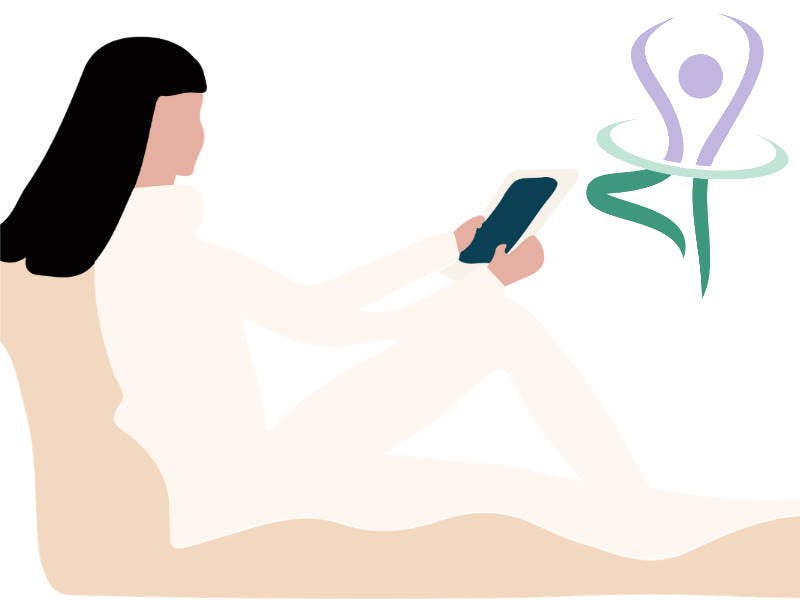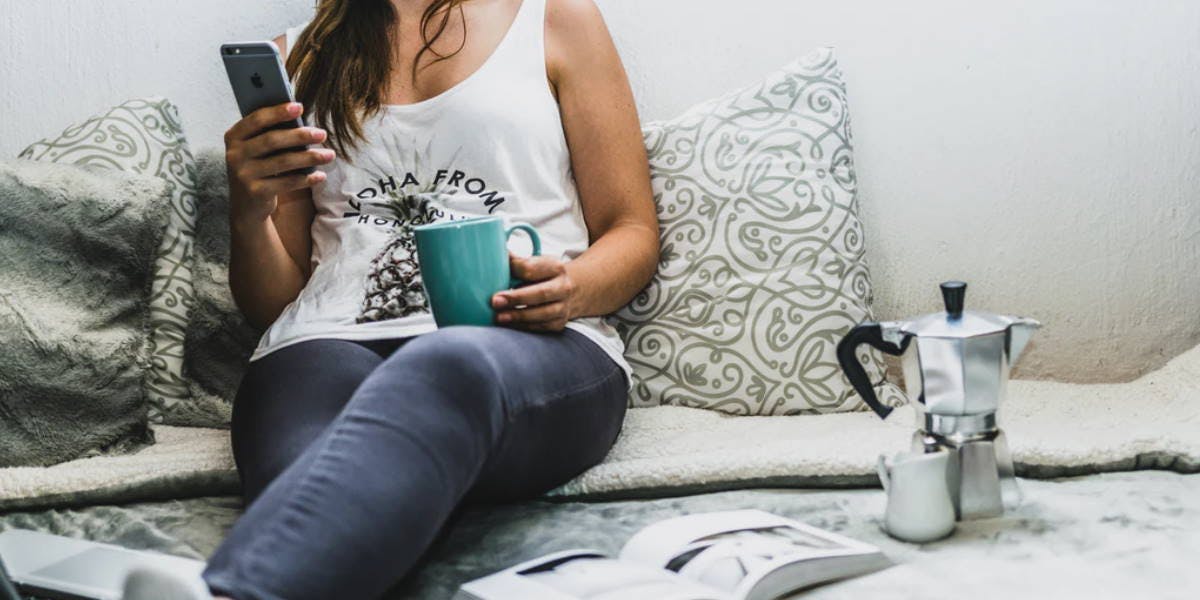This website uses cookies to enhance the user experience. By using Yoppie you are agreeing to our use of cookies.

Mental Health, Hygiene & Wellness
When mental health suffers in difficult circumstances, personal hygiene and overall wellness can follow: this guide explains how to be kinder to yourself.
How can mental health impact wellness?
The benefit of having routines
Little things to do on difficult days
When to ask for help
Taking care of yourself can be hard at the best of times. When you find yourself in a dark place mentally, it can seem like an impossible task. This guide will outline some simple wellness management techniques to help you to understand how everyday hygiene maintenance can help to keep your spirits up, even when you’re feeling down on your period or in extraordinary circumstances like quarantine lockdown.
How can mental health impact wellness?
When your mental health is suffering, it can be easy to let hygiene seemingly fall by the wayside. You simply feel as though you have bigger fish to fry. When your mental health is suffering it can creep into so many aspects of your life. When your mental health is suffering, mundane everyday things like brushing your teeth, taking a shower or washing a pad care are just not a priority.
Unfortunately, this can be something of a downward spiral. When you are feeling down, and already less motivated to care for yourself, you’ll start feeling worse. When you feel even worse, you become even less motivated, and so on - it is a vicious cycle.
When you are in a good place mentally, it can seem extremely rewarding to sit in a bubble bath at the end of a long day. When you are in a good place mentally, exfoliating your legs and washing your hair makes you feel like a pampered queen. When you are in a good place mentally, you can do a happy dance at how green you’re being as you wash out your menstrual cup! But these are two very different ends of the mental health spectrum.
When you do not have any imminent plans in your social calendar, or just can’t go out because of lockdown or other reasons, the motivation to pamper yourself or really care about anything can completely evaporate. The situation is even worse when you’re instructed to stay at home because of global issues that will have an impact on your wellness at the best of times. It can all make you think 'Why should I bother?'.
However, practicing good personal hygiene can help to prevent disease and keep your body in the best condition possible, which in turn can actually be beneficial to your overall mental and emotional health. Developing small habits and routines can make them easier to try to maintain when you are not in the best headspace.
The benefit of having routines
Filling your day with positive habits can exert less mental energy in the long run. When something becomes second nature to you, it can form part of a routine. Some studies have shown that having a healthy routine can help you to maintain good physical, emotional and mental health. This can be especially beneficial during particularly stressful personal times, such as when experiencing additional worry from the pressures of current events or working half on autopilot because it’s that Time Of The Month and being bothered with anything more seems impossible. Routinely practicing small habits can be enormously advantageous for you on those darker or harder days, which boosts your overall wellness.
It can sometimes be challenging to keep up your routine, especially after a long day or when you are on your period and all you want to do is collapse into bed. Continuing with the smallest of your habits will make you feel better. These can include things like taking off your makeup properly/cleansing your skin before getting into bed, tidying your personal workspace (always satisfying) and even picking out new pyjamas, because it’s less energy than changing the entire bed and still gives you a bit of that feeling of clean, new linens.
Little things to do on difficult days
On days when taking a full shower is simply too much for you to handle, maintain that part of your routine by washing only your face.
When you do not want to put on a whole new outfit then change your socks, put on fresh underwear and a new bra.
When you can’t be bothered to wash your hair, give it a brush, maybe spray it with dry shampoo, and stick it in a ponytail to keep it out of the way.
When you don’t have the energy to paint your nails, squeeze on some moisturizer or maybe just give your hands a good soapy wash to give them some love.
If you normally use reusable products like cups or washable pads, don’t get into a shame spiral – it’s okay to turn to easier to use disposable products for speed and ease, and you can still get greener or organic alternatives to the big brands on supermarket shelves so you don’t add ambient guilt to that emotional cocktail.
Some quick hygiene tips you can practice on a daily basis and even on the go include:
- Using baby wipes to clean your body when you don’t feel like taking a shower
- Spraying a perfume or body spray you like to elevate your mood
- Chewing gum or eating mints to keep your breath fresh
When to ask for help
If you find yourself regularly unmotivated to take care of yourself or with little motivation to take a shower or even brush your teeth, it can be a sign of self-neglect. These behaviour patterns or depressive cycles that can result in poor hygiene and wellness can accompany a range of mental and emotional disorders including depression.
Though we all have days when we simply cannot be bothered, if you find yourself frequently not wanting to use your deodorant, change your clothes or otherwise take proper care of yourself, it may be reflective of a larger issue and time to speak to someone about it.
So especially during these scary and difficult times, give yourself a break, embrace as much of a routine as you feel you are able to, and never be afraid to ask for help.

References
https://www.namikenosha.org/hygiene-and-mental-illness.html
https://www.blurtitout.org/2018/11/08/mental-health-benefits-routine/
https://www.outlife.org.uk/fs149-5-ways-to-improve-your-mental-health
Section jump
Back to top